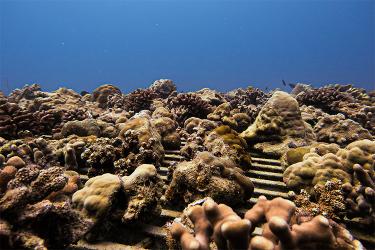These resources may be helpful in developing your New England B-WET application. For the full application requirements and deadlines, see the Notice of Funding Opportunity (NOAA-NMFS-GARFO-2024-2008240).
Special Interest Areas
New England B-WET also has two additional Special Interest Areas that applicants may wish to address if they choose. New England B-WET is very interested in projects that align with the following Special Interest Areas. Applicants are encouraged to address one or more of them as they capitalize on NOAA resources and issue areas that are a priority to the NOAA Greater Atlantic Regional Fisheries Office. While applicants are not required to address a NOAA Special Interest Area, reviewers will consider these Special Interest Areas when scoring applications.
These areas are: New England Fisheries and Protected Species and Climate Science, Resilience, and Justice.
1. New England fisheries and protected species
The Greater Atlantic Regional Fisheries Office is an office under the NOAA Fisheries. We work with partners to ensure sustainable fishing opportunities, protection for endangered species and marine mammals NOAA is interested in B-WET projects that develop student understanding around the ecological, economic, or cultural importance of New England fisheries and protected species, including, but not limited to, groundfish, shellfish, sea turtles, Atlantic salmon, or marine mammals, and the habitats that support them.
- Northeast Fish and Protected Species
- GARFO’s Protected Species Division
- GARFO’s Sustainable Fisheries Division
2. Climate change science, resilience, and justice
The K-12 education system is a well-positioned venue for instilling comprehensive knowledge, skills, competencies, and resilience around one of the most pressing economic, social and environmental issues of today: climate change. Education has the power to help students develop meaningful personal connections to climate solutions, a sense of personal agency and empowerment, and ultimately impact their behaviors and decision-making in relation to climate change (Kwauk, 2021; K12 Climate Action Commission, 2021). The MWEE framework can directly foster climate knowledge, skills, and competencies to address climate change, climate impacts, and the opportunities to contribute to climate solutions in their own communities. Applications incorporating this special interest area should demonstrate an understanding of age-appropriate, effective climate education communication strategies that will empower teachers and students to take individual, school-wide, and/or community action.
Educational Resources
- NOAA Resource Collections Website
- NOAA Education Strategic Plan
- NOAA In Your State
- NOAA In Your Backyard
- Ocean Literacy Principles and Concepts
- EPA’s “How’s My Waterway?” Tool
- Chesapeake Bay Office Resources:
Evaluation Resources
The following Education Evaluation resources may also be helpful in planning the evaluation components of your project.


